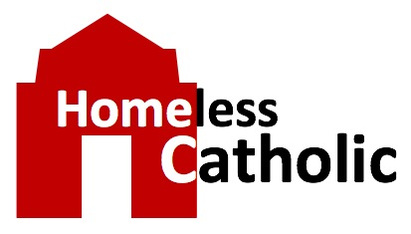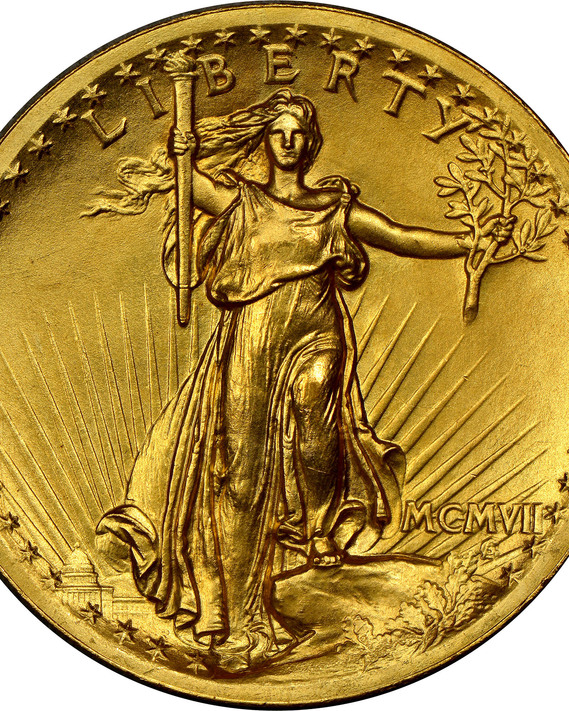In God We Trust
Reach into your pocket and pull out some coins (you still remember coins, don’t you?). You may need a magnifying glass or use your cellphone camera in closeup mode. Every US coin made since 1938 has the motto “In God We Trust” stamped somewhere on the coin.
"In God We Trust" is the official motto of the United States of America. It was adopted as the United States' motto in 1956 as a replacement or alternative to the unofficial motto of E pluribus unum, which was adopted when the Great Seal of the United States was created and adopted in 1782.
The first Saint-Gaudens double eagle coins issued in 1907 featured a date in Roman numerals, but this was changed later that year to the more convenient Arabic numerals. The motto "In God We Trust" was omitted from the initial design, as Roosevelt felt that putting the name of God on money that could be used for immoral purposes was inappropriate. Public outrage ensued. By act of Congress, the motto was added in mid-1908.
Was Teddy Roosevelt right? Was it a bad idea to mix money with “In God We Trust”?
In God We Trust
http://www.usccb.org/bible/readings/030419.cfm
Sirach 17:20-24
Mark 10:17-27
Reach into your pocket and pull out some coins (you still remember coins, don’t you?). You may need a magnifying glass or use your cellphone camera in closeup mode. Every US coin made since 1938 has the motto “In God We Trust” stamped somewhere on the coin.
"In God We Trust" is the official motto of the United States of America. It was adopted as the United States' motto in 1956 as a replacement or alternative to the unofficial motto of E pluribus unum, which was adopted when the Great Seal of the United States was created and adopted in 1782.
But the motto has been around long before its official adoption. The similar phrase 'In God is our Trust' appears in "The Star-Spangled Banner", adopted as the national anthem of the United States in 1931. Written by Francis Scott Key during the War of 1812, the fourth stanza includes the phrase, "And this be our motto: 'In God is our Trust'”.
“O thus be it ever, when freemen shall stand
Between their loved homes and the war's desolation.
Blest with vict'ry and peace, may the Heav'n rescued land
Praise the Power that hath made and preserved us a nation!
Then conquer we must, when our cause it is just,
And this be our motto: 'In God is our trust.'
And the star-spangled banner in triumph shall wave
O'er the land of the free and the home of the brave!”
"IN GOD WE TRUST" first appeared on US coins on the tails side of the two-cent piece in 1864. From 1866 on, at least two US silver or gold coins bore the motto. Today, all United States coins bear the motto, with the nickel being the last to fully adopt the changes in 1938, when the Jefferson nickel replaced the buffalo nickel.
The $20 gold coin was called a “double eagle”, because the $10 gold coin was called an “eagle”. The double eagle had “In God We Trust” on the eagle, or tail side of the coin beginning in 1866. It was not until 1907 that the motto was left out of the new design.
The Saint-Gaudens double eagle is named for the designer, Augustus Saint-Gaudens, one of the premier sculptors in American history. Theodore Roosevelt imposed upon him in his last few years to redesign the nation's coinage at the beginning of the 20th century. Saint-Gaudens' work on the high-relief $20 gold piece is considered to be one of the most extraordinary pieces of art on any American coin.
The first Saint-Gaudens double eagle coins issued in 1907 featured a date in Roman numerals, but this was changed later that year to the more convenient Arabic numerals. The motto "In God We Trust" was omitted from the initial design, as Roosevelt felt that putting the name of God on money that could be used for immoral purposes was inappropriate. Public outrage ensued. By act of Congress, the motto was added in mid-1908.
Perhaps Roosevelt may have been thinking about today’s gospel.
We hear the story of the rich man and his REALLY BIG QUESTION.
The man, a possibly a ruler or aristocrat, according to Luke, seems to be on a quest. He runs up to Jesus and kneels down before him, asking “Good teacher, what must I do to inherit eternal life?”
Good must have had a different meaning back then. Maybe more like “perfect” or “holy” or “all powerful”, because Jesus responds “Why do you call me good? No one is good but God alone.”
The man must have believed that Jesus was in fact in possession of the knowledge to answer his question about eternal life. He was looking for guidance and appeared respectful and hopeful for an answer that would point the way to the eternal life that he must have heard that Jesus had be pronouncing on his ministry.
Jesus goes through the list of “love thy neighbor” commandments from the second half of the ten commandments.
- You shall not kill
- You shall not commit adultery
- You shall not steal
- You shall not bear false witness
- You shall not defraud
- Honor your father and your mother
When you heard that in today’s Gospel, did you say to yourself “That’s not quite the commandments I remember?” I don’t recall “You shall not defraud” being one of the ten. The way I remembered it, was “Thou shalt not covet”, in the language of an older version of the Bible. I checked it out at Wikipedia, and it turns out that different religious traditions divide the seventeen verses of Exodus 20:1–17 and their parallels at Deuteronomy 5:4–21 into ten "commandments" or "sayings" in different ways, shown in a table on the same page. [https://en.wikipedia.org/wiki/Ten_Commandments]
You shall not defraud might belong in a 10 Commandments for Business. The man in our story assures Jesus that he has been following this list from his youth, so we can probably assume that his wealth is not from defrauding, cheating, or otherwise taking unfair advantage of others.
Jesus looked at him and loved him. WOW!! We should all be so lucky! It would seem that Jesus sees and approves of most of what the man has done in his life. Then Jesus gets around to answering the question about how the man can inherit eternal life.
“You are lacking in one thing. Go, sell what you have, and give to the poor and you will have treasure in heaven; then com, follow me.” At that statement, his face fell, and he went away sad for he had many possessions.
We don’t really know what the rich man did next. He didn’t seem to a bad man. But he was striving to “inherit eternal life”, which isn’t as simple as “buying a stairway to heaven”.
I think there is a lot of understated direction in the short discourse on the 10 Commandments. I mentioned the missing “you shall not covet” without much comment earlier. Coveting another’s possessions often leads to trying to keep up or one up your neighbors, friends, or associates. That can lead to spending more on “stuff” than on helping those in need. Equating stuff accumulation to wealth then creates another problem. “Stuff” becomes your focus, how you measure your success – it has become your god. Not “THE God”, but a false god, like the ones we are warned about in the very first of the 10 Commandments: “Thou shalt have no other gods before me”.
Was Teddy Roosevelt right? Was it a bad idea to mix money with “In God We Trust”?
I will admit to being blessed with a good (can I use that word here?) mix of faith, health, family, friends, and wealth. Am I prepared to sell what I have, give to the poor, then follow Jesus? Well, some. A bit. Not all.
I share the views of the disciples when Jesus said to them “How hard it is for those with wealth to enter the Kingdom of God!”
They were “amazed” and “exceedingly astonished”, asking “Then who can be saved?”
Jesus looked at them and said, “For men it is impossible, but not for God. All things are possible with God.”
“In God We Trust”, indeed!

